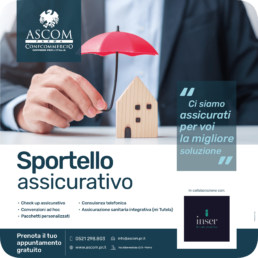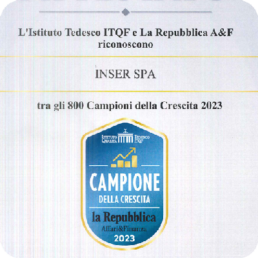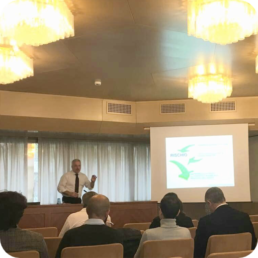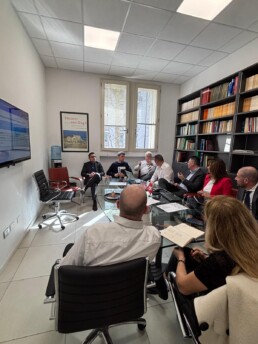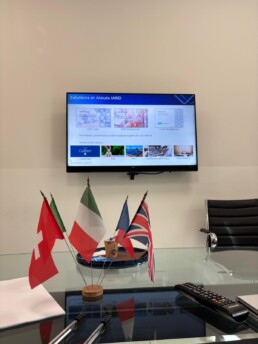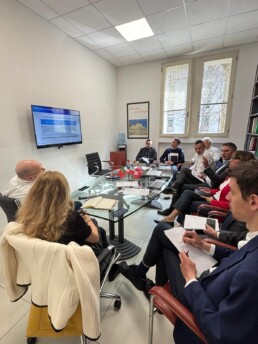Adelaïde Group confirms growth momentum and strengthens European presence
Adelaïde Group confirms growth momentum and strengthens European presence

With turnover of €450 million in 2024, up 12.5%, the Adelaïde Group has reached a new milestone in the roll-out of its Better Future 28 strategic plan to become Europe's leading independent family insurance broker, and has confirmed its ambition to achieve turnover of €800 million by 2028.
Solid results and sustainable growth momentum
When presenting the annual results, Benjamin Verlingue, Chairman and CEO of the Adelaïde Group, along with Audrey Verlingue and Gilles Bénéplanc, Deputy CEO’s of the Adelaïde Group, highlighted the solidity of the Group's model, based on robust organic growth (+10%) and a strategy of targeted acquisitions.
"Our 2024 performance confirms the relevance of our strategy and the strength of our independent family model. Our Better Future 28 strategic plan, launched only nine months ago, embodies our collective ambition: becoming Europe’s leading family brokerage company, while remaining true to our values of excellence, proximity and innovation in the service of our clients," Benjamin Verlingue said.
2024: A year marked by strategic acquisitions
The Adelaïde Group strengthened its strategic positions in the European brokerage market by making four acquisitions, illustrating its desire to diversify its expertise and expand its geographical presence:
- DUNE (France): This MGA (Managing General Agent), or underwriting agency, specialising in construction insurance, enables the Group to broaden its scope of expertise in insurance distribution.
- ProConseils Solutions (French-speaking Switzerland): Verlingue's first location in French-speaking Switzerland, marking a significant step forward in the brokerage market in this key region.
- MBB and Brixia Broker (Italy): Two acquisitions of insurance brokers that strengthen the territorial coverage of Inser, Verlingue's subsidiary in Italy.
"These acquisitions illustrate our aggressive external growth strategy. They will enable us not only to broaden our offering, but also to strengthen our presence in Europe, while retaining our industrial and long-term approach," added Audrey Verlingue.
2024 highlights: a year of growth and transformation across the Group
In 2024, the Adelaïde Group continued its growth momentum, marked by solid performances and strategic investments across its various entities.
- Verlingue generated turnover of €314 million, up 10%. The year was marked by sustained commercial development and significant investment in information systems, strengthening its competitiveness and its ability to support its clients ever more effectively. Thanks to sustained expansion in France and Europe, notably through acquisitions in Italy and Switzerland, Verlingue has consolidated its position in the brokerage market. In 2024, international business accounted for 37% of Verlingue's turnover. Vincent Harel has been appointed Chief Executive Officer of Verlingue, due to take up his post on 28 April 2025.
- Génération, a Third-Party Administrator (TPA) for both individual, company health and employee benefits, achieved remarkable growth of 18%, with turnover of €121 million. Its portfolio grew to 2.6 million health policyholders and 1.2 million life insurance policyholders, confirming its key role in supplementary social protection in France, in both the group and individual markets.
- Cocoon, a subsidiary dedicated to individual health insurance, continued to restructure its portfolio by optimising its digital channels, improving the customer experience and sustaining profitable growth with turnover of €13 million. In 2024, the brand stepped up its activity in the individuals leaving group schemes segment in particular, recording 12,000 new contracts.
- DUNE, which joined the Group in 2024, aims to position itself as a key player in the underwriting market, specialising in construction insurance. This new entity has already underwritten €10 million in premiums through a network of 650 brokers, illustrating its strong strategic potential and its ability to enhance the Group's offering.
Gilles Bénéplanc, Deput Chief Operating Officer of the Adelaïde Group, said: “We were able to combine performance and transformation in 2024, supported by strategic investments in our various businesses as well as in digital and data. The year 2025 will be decisive in accelerating this momentum. We will continue to invest to improve our operating efficiency, make acquisitions and innovate to achieve our objectives and strengthen our position in Europe.”
News
Catastrophic risks: What changes for businesses under the new insurance obligation?
Agribusiness: meeting between Inser and Verlingue France teams in Parma

The Inser and Verlingue France teams met in the Parma office for a technical and strategic discussion dedicated to agribusiness
An important meeting between the Inser and Verlingue France teams was recently held in Parma, entirely dedicated to agribusiness, a strategic and constantly evolving sector. The initiative involved several colleagues from Inser and our French colleagues Roland Branger and Roland Baudu, Head of loss prevention from Verlingue, with the aim of creating new operational synergies in a sector that in Italy, and in particular in the province of Parma, represents excellent production. During the day, ample space was dedicated to the analysis of the agri-food market; the discussion highlighted the growing importance of insurance specialisation for the food industry and the need to develop vertical solutions capable of responding to the needs of increasingly complex and international supply chains.
We started with a consultancy approach aimed at describing the procedures of Risk mapping, Project management assistance, Natural risks Management, Due Diligence, Training, Digital ‘surveys’ with the presentation of innovative integrated risk management tools such as the Web Platform Risk@ccess. The discussion also included a shared analysis of the most effective insurance coverage with reference to interesting case histories and exclusive agreements such as the tampering stand alone policy. Particular attention was given to claims management and prospects for joint business development.
This meeting represented a moment of growth and discussion with high added value, in line with the strategic vision of the Adelaïde Group: to strengthen collaboration between countries, to share experiences and tools and to offer customers increasingly advanced solutions. Agribusiness is thus confirmed as fertile ground for the development of new integrated insurance services, with a focus on innovation and sustainability.
News
Catastrophic risks: What changes for businesses under the new insurance obligation?
Catastrophic risks: What changes for businesses under the new insurance obligation?

Insurance obligation for catastrophic risks: what the new legislation requires and what companies must do by 31 March 2025
The webinar "Insurance obligation for catastrophic risks - Budget Law no. 213/2023, implementing Ministerial Decree no. 18/2025" was held on Friday 21 March, sponsored by Unione Parmense degli Industriali, Gruppo Imprese Artigiane and Inser Spa, insurance broker of the Verlingue Group.
The meeting provided a timely and operational analysis of the new regulatory framework which, from 2024, will impose an unprecedented insurance obligation on all companies:
By 31 March 2025, companies with a registered office or permanent establishment in Italy will have to take out insurance against direct damage caused by natural disasters and catastrophes (earthquakes, floods, landslides, extreme weather events).
During the webinar, speakers Rossella Carapezzi, Michele Larini and Ivo Gaeta from Inser Spa explained the main operational aspects of the implementing decree no. 18 of 30 Jan. 30 January 2025, highlighting:
- the assets covered by the compulsory insurance: land, buildings, plant, machinery and industrial or commercial equipment used for business activities;
- the entities concerned: all companies operating in Italy, including foreign branches with an operational base in the country;
- the characteristics of the policies: obligation for companies to take out insurance, definition of limits, presence of deductibles and excess, periodic updating of premiums based on the evolution of the risk;
- the underwriting capacity of the market: a critical point of confrontation between insurers and brokers.
The initiative was an important moment of discussion to prepare with awareness for a regulatory change that will have a broad impact on the Italian productive fabric.
News
Liability of the P.A. for the act of public servants and employees
Liability of the P.A. for the act of public servants and employees.

Article 2049 of the Civil Code, under the heading “liability of masters and principals,” regulates a form of liability for the act of others, i.e., the liability of the principal for the act of the principal.
This is a model that meets the need for maximum protection of the legal sphere of others and fulfills the function of raising the level of guarantee of the compensability of damages.
Thus, the principal is liable by reason of the organizational role he or she plays, i.e., as a result of a special relationship that binds him or her to the material author of the harmful act.
The provision is actually based on a fiction that reflects the principle “cuius commoda, eius et incommoda”: that is, the activity of the principal benefits the principal and that is why the system imputes it to the latter.
There are three prerequisites required for the operation of Article 2049 of the Civil Code: i) that a third party has suffered unjust damage, as a result of a wrongful act; ii) that the wrongful act was caused by a “servant or clerk”; iii) that there is a relationship between the damage and the “duties” entrusted to the clerk (so-called “necessary relationship of occasionality”).
The Public Administration can also be held liable as a result of the wrongful act, committed by public servants and employees.
This liability is grounded in the relationship of organic immedesimation: the state and public bodies act through their organs, which do not constitute separate subjects, but organic articulations of the bodies in which they identify themselves.
Therefore, the P.A. is immediately and directly liable for the wrongful acts of its officials and employees, whatever the duties performed by the latter (conceptual or orderly; intellectual or material).
For such liability to arise, however, it is necessary that the conduct of the public employee be in some way referable to the Entity. In other words, the P.A. is liable under Articles 28 Const. and 2049 Civil Code only when the performance of public functions has been “condicio sine qua non” of the fact producing the damage.
However, the link of occasionality is broken when it is proven that the agent's behavior (intentional or negligent) is not directed to the achievement of the institutional purposes proper to the office, but is determined by strictly personal and selfish motives, such as to exclude any connection of necessary occasionality between the duties entrusted to him and the activity productive of the damage.
For further discussion:
- Cass. Civ., SS.UU., no. 13246/2019;
- Cass. Civ., no. 865/2024.
News
Revocation of proposed award for misrepresentation: act assessable in terms of mere expediency and convenience
Revocation of proposed award for misrepresentation: act assessable in terms of mere expediency and convenience

The case
On June 13, 2018, the State Property Agency announced a public evidence procedure, to award real estate, belonging to the State Water State Property, as a concession.
At the end of the procedure, the Contracting Authority issued a proposal for provisional award, in favor of the economic operator who had submitted the best bid.
However, at the outcome of the checks provided for under Article 75, Presidential Decree No. 445 of 2000, the Agency revoked the provisional award, as it was ascertained that the successful bidder had a criminal conviction decree against him (for the crime of land invasion), which was not declared in the administrative documentation.
The economic operator decided, therefore, to appeal the revocation measure because - in its opinion - the Commission had awarded the lot on the grounds of the economic convenience of the bid submitted, regardless of the untrue information found in the attached statement in lieu of certification.
In Judgment No. 3591/2024, the Regional Administrative Court for the Region of Sicily, Catania branch, rejected the appeal, for the following reasons.
Reasons for the decision
According to the judges, the provisional award is an endo-procedural act, which determines a not-yet-final choice of the successful bidder.
Therefore, it falls within the discretionary power of the Administration to revoke it, assessable in terms of mere expediency and convenience, the exercise of which disregards the application of Art. 21 - quinquies of Law No. 241 of 1990, which requires for the exercise of revocation the existence of concrete reasons of public interest, such as to make the continuation of the tender operations inappropriate.
In addition, the prevailing jurisprudential orientation - according to which forfeiture for false statements applies only in cases where it is such as to causally affect the adoption of the measure - cannot be applied in the present case, since, the operator since the call for tenders had been made aware of the obligation to declare that he had not been convicted of any criminal offenses.
For further discussion:
- Judgment No. 3591/2024, the T.A.R. for the Region of Sicily, Catania detached section;
- Articles 45, 46 and 75, Presidential Decree No. 445 of 2000.
News
MBB Insurance Broker joins Inser
MBB Insurance Broker joins Inser

The integration of MBB into Inser strengthens our professional offering and presence in the territory: the team has just moved into the Bergamo office
A new piece is added to the growth of Inser, an Italian insurance broker controlled by Verlingue, an Adelaïde Group company. MBB Insurance Broker, an independent company with more than 20 years of experience in the sector, has officially joined our network.
The integration of MBB into Inser is not just an acquisition, but a strategic opportunity to strengthen our ability to offer specialized advice and tailored insurance solutions. Through this, we will be able to serve even more clients, ensuring expertise and reliability in an increasingly complex market.
Who is MBB Insurance Broker?
Founded in 2002, MBB Insurance Broker was born from the merger of two historical Bergamasque insurance brokerage companies, active since the 1980s. Over time, the company has established itself as one of the leading independent insurance brokers in the province of Bergamo, with a strong focus on:
- Companies;
- Public entities;
- Professionals and individuals;
- Construction companies.
Integration into Inser: new opportunities for the market
MBB's entry into Inser brings concrete benefits for clients:
- greater ability to negotiate with insurance companies;
- an even more specialized risk management team;
- innovation in services, with digital solutions and targeted consulting;
- strengthened territorial presence, in the operational headquarters in Bergamo.
As of these days, MBB staff completed the move to Inser's Bergamo office, thus consolidating the operational union between the two entities.
A welcome aboard to our new colleagues!
News
Anac: indications in aid of contracting stations on controls and checks in the execution phase
Anac: indications in aid of contracting stations on controls and checks in the execution phase

As a result of the numerous anomalies and irregularities found during a widespread supervision activity on contracts, Anac - in aid of contracting stations - has resolved four indications, to improve the execution phase of contracts, as in it is translated the care of the public interest underlying the call for tenders.
1. Correct configuration of the lex specialis and the tender contract and verification of improvements.
In Anac's opinion, it constitutes good administrative practice to provide detailed information in the tender documents, to prepare verification checklists and to carry out surprise inspections on a periodic basis. This is to avoid the control carried out by the DECs and the RUPs being only subsequent, i.e., initiated by reports from service users or negative feedback related to critical and pathological events in the performance rendered by the contractor.
2. Implementation of the organizational structure assigned to carry out controls.
Each contracting station must undertake to provide those charged with carrying out controls (RUP and DEC) with the most appropriate training, as well as the most adequate resources and instrumentation. The centrality attributed in the new Public Contracts Code to the principle of results constitutes a priority criterion, among other things, for assessing the responsibility of personnel performing administrative (or technical) functions in the planning, design, awarding and execution phases of contracts.
3. Conduct of controls from a substantive point of view.
DECs and RUPs must not only carry out activities of a formal nature, but perform, with ownership, all the functions attributed to them by the code (Articles 114, 115, 116 and Articles 31 et seq. of Annex II.14, of Legislative Decree 36/2023). It follows that the attestation that the controls have been carried out should not be limited to mere formulas of style, but should be in line with the provisions of the individual Special Specifications, supplemented by the technical offer (so-called substantial control).
4. Verbalization of control activities carried out during the execution of the contract.
Finally, ANAC invites contracting stations to verbalize all control activities, to give evidence of the checks carried out, their outcome and the measurability criteria used, by virtue of Article 31, paragraph 2, of Annex II. 14 to the code, according to which the technical-accounting control activity must be evidenced by special minutes.
For further discussion:
- ANAC Resolution, no. 497/2024;
- Articles 114, 115, 116 and Articles 31 et seq. of Annex II.14, Legislative Decree 36/2023.
News
Vincent Harel appointed Chief Executive Officer, Verlingue, with effect from 28 April 2025
Vincent Harel appointed Chief Executive Officer, Verlingue, with effect from 28 April 2025

The Adelaïde insurance brokerage group, which includes Verlingue, Génération, Cocoon and Dune, has announced the appointment of Vincent Harel as Chief Executive Officer, Verlingue. He will report directly to Benjamin Verlingue, Chairman, Verlingue and Chairman and Chief Executive Officer, Adelaïde Group. As such, Vincent Harel will also be a member of the Adelaïde Group Executive Committee.
"Vincent's arrival is an important step in our new Better Future 28 strategic plan. His professional approach and drive will enable us to strengthen our positions in all our business segments and contribute fully to our strategic ambition of becoming Europe's leading family-owned insurance broker”, said Benjamin Verlingue.
Most recently, Vincent Harel was co-CEO Marsh McLennan France from 2023 and Chairman of Mercer France from 2019; an insurance brokerage and HR consultancy company which he joined in 2003, holding various positions in management, consultancy and new business development.
Vincent Harel is a graduate of ESSCA (2000), of which he is also President of the Alumni, and he began his career in management and organisation consulting with Capgemini Consulting.
“It is a huge pleasure to be able to contribute to the next stages of Verlingue’s development within the Adelaïde Group. I know that I can rely on employees who are very committed to their company, whether in France or in Europe, and I am confident that our position as an independent, family-run business is a strength,” emphasised Vincent Harel.
News
Inser present at Enactus Italy 2025 Kick-Off
Inser present at Enactus Italy 2025 Kick-Off

On February 25, the Enactus '24/'25 year kicked off with an event that brought together students, academics and companies
On February 25, 2025, the Enactus Italy Kick-Off Event was held, a key moment for the start-up of new entrepreneurial projects with social impact. The meeting involved more than 100 university and ITS students, along with academic and corporate representatives, creating a space for dialogue and training. These included Inser, an Italian insurance broker controlled by Verlingue, which attended the meeting in the person of Michele Larini, Head of the Parma office. A presence that confirms our commitment to supporting the new generations through our collaboration with Enactus.
The main novelties for 2024/2025
During the meeting, key developments for the current year were presented:
- Fondazione Enactus Italia ETS: supported by Fondazione Caritro, with the entry of new partners such as ELIS Innovation Hub and Next4 International, strengthening the ecosystem supporting social entrepreneurship.
- New mentoring facility for Universities and ITS: developed in collaboration with SocialFare and WDA Venture Builder, aiming to provide concrete tools for the creation of social impact enterprises.
- KPMG Challenge: for the second year in a row, focused on Artificial Intelligence. 11 teams were selected, with 4 winning projects gaining access to mentoring with KPMG experts.
The panel of experts: innovation and territorial impact
A key moment of the event was the panel discussion, moderated by journalist Giampaolo Musumeci, with the participation of experts in the field:
- Paolo Licata, Founder and Venture Builder of Clover Venture
- Andrea Silli, Startup Area Director of Trentino Sviluppo
- Anna Sofia Zanada, Community Manager in Randstad Box
The discussion explored the factors that make an area fertile for innovation, highlighting the importance of advanced training, structured entrepreneurial ecosystems and public-private synergies.
Inser: an ongoing commitment to the future of innovation
Inser's support for initiatives like Enactus is part of a broader corporate social responsibility strategy. Supporting young talent and stimulating the development of innovative entrepreneurial solutions is an essential lever for meeting market challenges.
The event was a significant opportunity to consolidate the dialogue between students, companies and institutions, with the aim of fostering the growth of an economic ecosystem increasingly oriented toward sustainable innovation. Next event: the National Competition in Milan on May 14-15!
News
New IVASS criteria for direct compensation: what changes for insurance companies
New IVASS criteria for direct compensation: what changes for insurance companies

IVASS redefines compensation parameters: Measure 156/2024
The Insurance Supervisory Authority (IVASS) has introduced important changes to the direct compensation system with Measure No. 156/2024. The aim is to ensure greater accuracy in the calculation of economic compensation between insurance companies participating in the CARD convention. This change follows a series of regulatory updates already initiated by Measure No. 18/2014 and subsequently supplemented by Measures No. 43/2016, No. 79/2018 and No. 102/2020.
The main changes introduced by Measure 156/2024
The new measure makes two major changes to the criteria for calculating compensation:
1) exclusion of natural CARD claims from the average cost calculation IVASS found that the management of natural CARD claims has a different efficiency than claims managed on behalf of other companies. Since the costs of these claims are set unilaterally by the company that insures both the responsible party and the injured party, they are difficult to compare with those of other companies. Therefore, excluding them from the average cost calculation allows for a more homogeneous comparison consistent with the goal of containing costs and ensuring fairness among companies;
2) calculation of cost dynamics based on national claims The second intervention concerns the way of calculating the cost dynamics of claims with property and vehicle damage. IVASS has decided to use data on claims that occurred throughout the entire country, overcoming the previous division into macro-areas. This approach reduces the impact of any local shocks on costs and provides a more robust and consistent representation of insurance cost trends. In addition, considering that cost trends are assessed over three fiscal years and compared only with data from the same company, IVASS has kept natural CARD claims in the calculation base.
Impact on business performance and antifraud
The adjustment of the calculation criteria is not just a technical revision: it has important operational impacts for insurance companies. The new methodology makes it possible to more accurately measure companies' effectiveness in claims handling, rapid settlement, and anti-fraud activities. In fact, the CARD system rewards the most efficient companies and penalizes the least efficient ones, providing incentives for continuous improvement.
This reform will help strengthen the competitiveness of the industry while providing greater protection for policyholders by reducing overall costs.


























































